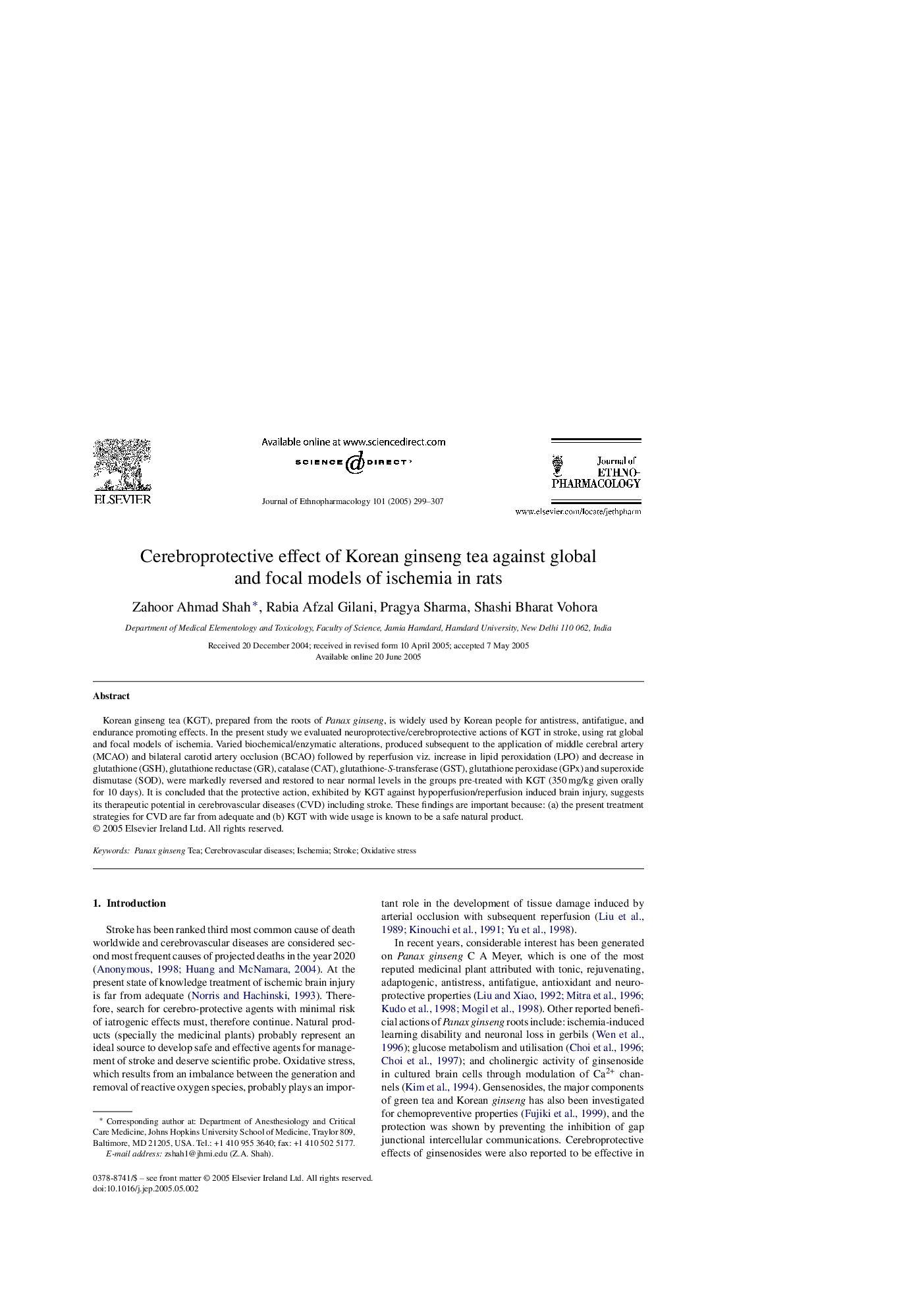| Article ID | Journal | Published Year | Pages | File Type |
|---|---|---|---|---|
| 9011241 | Journal of Ethnopharmacology | 2005 | 9 Pages |
Abstract
Korean ginseng tea (KGT), prepared from the roots of Panax ginseng, is widely used by Korean people for antistress, antifatigue, and endurance promoting effects. In the present study we evaluated neuroprotective/cerebroprotective actions of KGT in stroke, using rat global and focal models of ischemia. Varied biochemical/enzymatic alterations, produced subsequent to the application of middle cerebral artery (MCAO) and bilateral carotid artery occlusion (BCAO) followed by reperfusion viz. increase in lipid peroxidation (LPO) and decrease in glutathione (GSH), glutathione reductase (GR), catalase (CAT), glutathione-S-transferase (GST), glutathione peroxidase (GPx) and superoxide dismutase (SOD), were markedly reversed and restored to near normal levels in the groups pre-treated with KGT (350Â mg/kg given orally for 10 days). It is concluded that the protective action, exhibited by KGT against hypoperfusion/reperfusion induced brain injury, suggests its therapeutic potential in cerebrovascular diseases (CVD) including stroke. These findings are important because: (a) the present treatment strategies for CVD are far from adequate and (b) KGT with wide usage is known to be a safe natural product.
Related Topics
Health Sciences
Pharmacology, Toxicology and Pharmaceutical Science
Pharmacology
Authors
Zahoor Ahmad Shah, Rabia Afzal Gilani, Pragya Sharma, Shashi Bharat Vohora,
